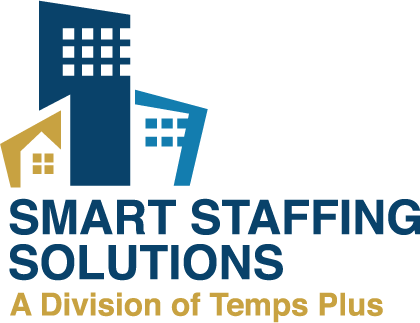The number of people moving to gig work from the conventional nine-to-five increases each year, and it is an important consideration for all employers. The flexibility, working on your own terms, project-based work, and the availability of digital connectivity, is an attractive option for many individuals.
The growth is fast and steady, with about 57 million gig workers in 2017 growing to almost 73 million in 2023. By 2028, it is expected there will be an estimated 90 million gig workers. So, as an employer, how does this trend impact you?
If you are already hiring gig employees, or are considering it, you might want to look for a staffing agency that specializes in finding the perfect hires for your company.
The Upside
Because of the prevalence of short-term contracts and freelance workers, there are many positive aspects the increasing gig economy has for employers.
1. Cost Savings
Hiring gig workers can cost less than traditional employees. Even if their hourly rate might be higher, they are usually responsible for many of their own expenses, like benefits and equipment.
2. Access to More Qualified Workers
Gig workers usually have expertise in certain niches, allowing employers to access a larger talent pool. This allows employers to put together highly qualified teams without hiring full-time employees.
3. Increased Productivity
Gig workers are usually highly motivated, and sometimes more driven than full-time employees. Their flexibility and adaptability allow them to work efficiently with increased productivity. In fact, in a recent survey gig workers were 47% more effective than regular employees.
4. Administrative
Hiring gig workers usually involves less administrative work compared to permanent employees. Human resources departments might not have to deal with complex payroll processes, tax withholdings, and benefits administration.
To find gig workers, there is probably a staffing company that can help you find the best candidates. There are even staffing solutions companies specializing in specific industries, like real estate, ensuring you will enjoy the upsides of hiring gig, or temporary staff without the work of searching for applicants.
The Downside
While the gig economy has many benefits for employers, there are also downsides. However, there are ways to mitigate the risk of hiring short-term or gig employees by using a staffing agency. They will do a thorough screening of applicants to ensure you are getting the best workers for your company.
1. Lack of Commitment
Because gig workers are independent contractors, they have no long-term commitment or loyalty to an employer. They have the freedom to choose projects and clients, and they can easily move on to other opportunities. A staffing solutions company will make sure applicants are the right fit for your company culture and increase the chances they will be committed to their position.
2. Reduced Control and Cohesiveness
Gig workers sometimes work off-site, and this can make it challenging to have control over the work environment, quality standards, or have timely communication. This can also lead to a lack of collaboration with on-site teams. If you hire a gig worker using a staffing solutions company, they take care of the training, ensuring applicants are up to speed with your processes and how to communicate with you throughout their time with your business.
3. Legal Complexities
Some cities have laws and regulations specifically for gig employees. As an employer, you will need to navigate these complexities to make sure you are compliant and avoid potential legal consequences. Legal issues can be stressful, and avoiding them is definitely the goal of most businesses. By hiring a staffing company, these risks are lessened, because they take on this aspect of hiring a gig worker.
What Can You Do?
If you are considering hiring gig workers, there are many things to consider.
1. Fair Compensation
Even though a gig worker isn’t a permanent employee, their pay should be consistent with their experience, skills and the market rates.
2. Clear Deliverables and Expectations
Because gig employees are sometimes off site and don’t have a set schedule, it is important to set clear expectations, guidelines, and timeline for each project.
3. Effective Communication
Open and timely communication is important. You should establish effective lines of communication with your gig workers, and make sure they are connected with other members of the team, if necessary. This can help with maintaining a collaborative and productive relationship.
4. Hire a staffing solutions company
Especially with gig or temporary workers, using a staffing company can benefit most companies. As discussed, they take on finding candidates, screening, and the hiring paperwork. This eliminates the most stressful parts of bringing in gig employees!
It is also important to consider how you classify gig workers to comply with local laws, consider confidentiality agreements, and how to give performance evaluations and feedback. Overall, hiring gig workers can be a positive thing for your business, if you fully understand the positives, negatives, and how to navigate the process.
If you need help navigating the gig economy and hiring the most qualified staff for your business, Smart Staffing Solutions can help. Contact us today to learn more.
Sources:
- Prosperity for America. Gig Economy Statistics For 2023 (Number of Workers In The US). Accessed July 12, 2023.
- Zippia. 23+ Essential Gig Economy Statistics [2023]: Definitions, Facts, And Trends on Gig Work – Zippia. Accessed July 12, 2023.

